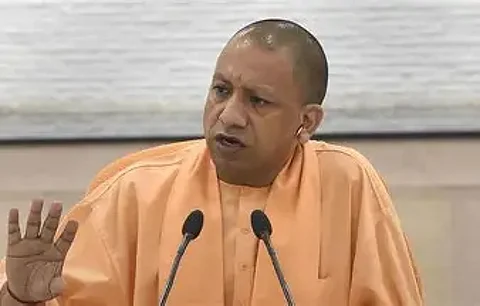

In a determined effort to eliminate lymphatic filariasis (commonly known as elephantiasis), the Government of Uttar Pradesh is set to launch a large-scale Mass Drug Administration (MDA) campaign on August 10, 2025, targeting over 44.3 million people across 27 districts.
This statewide initiative falls under the National Filaria Elimination Programme, and is being implemented by the Department of Medical Health, with support from global and national organizations including WHO, PATH, Project Concern International, Global Health Strategies, and CIPHER.
At a media workshop held in Lucknow, Dr. A.K. Chaudhary, Additional Director (Malaria) and State Programme Officer for Vector-Borne Diseases, shared that the campaign will be conducted in two formats:
In 17 endemic districts, a two-drug regimen of DEC and Albendazole will be administered.
In 10 other districts, a three-drug regimen including DEC, Albendazole, and Ivermectin will be used.
Dr. Chaudhary emphasized that anti-filaria drugs are completely safe, including for people with chronic conditions like diabetes, hypertension, or arthritis. However, pregnant women, children under two, and seriously ill individuals will be excluded from the medication drive.
He added, “If someone experiences nausea, dizziness, vomiting, or itching after taking the medication, it’s actually a good sign—it means the parasites are dying.”
To manage any side effects and ensure safe delivery, Rapid Response Teams will be deployed at every block. Drugs will be administered under the supervision of trained health workers, either door-to-door or at designated booths. Citizens are advised not to take the medicine on an empty stomach, and not to store or redistribute the medication themselves.
Dr. Tanuj Sharma, WHO’s State NTD Coordinator, called filariasis one of the leading causes of long-term disability worldwide. He explained that the disease, transmitted by mosquitoes and often acquired in childhood, can lead to lymphedema, hydrocele, or chyluria if untreated—conditions that not only disable but also carry severe social and economic consequences. He noted that Albendazole, a key drug in the regimen, also helps treat intestinal worms in children, improving their physical and cognitive development.
The media workshop also brought together implementation partners and communication experts:
Dhruv Singh (Project Concern International) highlighted the role of local leaders, self-help groups, and ration dealers in grassroots awareness.
Dr. Siddharth (PATH) reiterated continued support for the state’s MDA and MMDP (Morbidity Management and Disability Prevention) programmes.
Ranjana Dwivedi (CIPHER) stressed the importance of storytelling and media in making filariasis a human-centered issue through empathetic reporting.
Anuj Ghosh (Global Health Strategies) underscored the media’s influence in shaping public behavior and urged journalists to amplify campaign messaging to ensure maximum reach and participation.
This comprehensive campaign reflects Uttar Pradesh’s unwavering commitment to eradicating filariasis and securing a healthier future for millions of its residents.